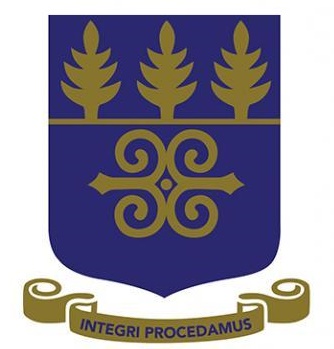ENGL 318 3 Credit Hours
Varieties and Functions of the English Language
This information is for second semester 2017/2018 academic year
Teacher responsible
Ms. Mary Keleve
Availability
This course is available open to all visiting students but only as a second semester course.
Course Content
ENGL 318 covers some of the varieties of English that occur globally. Particularly, the course deals with variations based on the geographical locations of users, the social relationships and occupational roles. The linguist features that identify users based on the differences mentioned above will be looked at, in other words, accent and dialect differences will receive attention. Selected varieties including educated British, American, Canadian and Australian varieties will be studied as mother tongue forms of English. The course also deals with English as a Second Language (L2) and English as Foreign Language (EFL) varieties in Africa, India and Singapore.
Teaching
Thursdays, 1:30-3:20pm for 12 weeks
The course will be delivered mainly through lectures and power point presentations. Lectures will be interactive to engage students in order to achieve maximum students’ participation as possible.
Formative Coursework
· Class attendance will be taken seriously. A student who misses more than three lectures is in damage of being disqualified from writing the final Examination.
· Individual assignments/quizzes will count towards final grading
· Participation and actual contribution in group projects and seminars will earn you grades that count towards final grading
Indicative reading
- Hughes, G.A. & Trudgill, P. (1996) English Accents and Dialects. An Introduction to the social and regional varieties of English on the British Isles (3rd edition). London: Arnorld
- Trudgill, P. (1999) Standard English: What it isn’t, in Bex, Tony and Watts, R.J. (eds.) Standard English. The widening debate. London: Routledge (117-128)
- Deterding, D. (2007) Singapore English. Edinburgh: Edinburgh University Press.
- Kortmann, B. & Schneider, E.W. (2008) Varieties of English.
- Kachru, B.B. (1992) The Other Tongue; English across Cultures. Urbana and Chicago: University of Illinois Press
- Leimgruber, J.R.E. (2009) Modelling variation in Singapore English. D.Phil. Thesis, Faculty of English, University of Oxford.
- Bamgbose, A. (1995) English in the Nigerian Environment, in Bamgbose, A., Banjo, A., and Thomas, A. (eds.) New Englishes: A West African Perspective. Ibadan: Mosorupp, 9-26
- Jowitt, D. (1991) Nigerian English Usage: An Introduction. Ibadan: Longman.
- Samida, D.K. (2010) English in the world Today: Journal of Hokkaido Bunkyo University, vol. 10
- Bakomba, E. (1983) The Africanization of English, in Kachru, B. (ed.) The Other Tongues: English across Culture. Oxford: Pengason, pp. 210-220
- Wolfman, W. (2004) Social varieties of America English; Language in the U.S.A, theme for the twenty-first century. Cambridge University Press.
- Bragg, M. (2011) The Adventure of English
- Crystal, D. (2002) English as a Global Language. U.K: Cambridge University Press.
- Crystal, D. (2002) The Cambridge Encyclopedia of the English Language
Grading Scale:
|
Letter grade |
Marks |
Grade point |
|
A |
80-100 |
4.0 |
|
B+ |
75-79 |
3.5 |
|
B |
70-74 |
3.0 |
|
C+ |
65-69 |
2.5 |
|
C |
60-64 |
2.0 |
|
D+ |
55-59 |
1.5 |
|
D |
50-54 |
1.0 |
|
E |
45-49 |
0.5 |
|
F |
0-44 |
0.0 |

